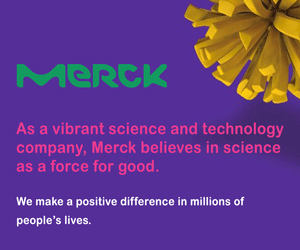1MG FlippingBooks
Prepare For Hell
Dr Adir Shiffman is brutally honest about what’s involved in growing a start-up: endless problems, endless disasters, endless catastrophes.But, if you can solve most of these challenges effectively, you end up with a high-quality company.

Innovating is, mostly, not fun. Except in the most financially reckless of times, the idea of the start-up as a resource-rich juggernaut is entirely fictional. In reality, embarking on a disruptive, innovative endeavour means creating something previously untried that will likely fail, or trying again where others have failed. Consequently, founders and early-stage start-up employees experience a tremendous amount of stress.
A daily dose of relentless anxiety severely degrades happiness, damages health and strains relationships inside and outside work. Hence, start-ups should be the exclusive domain of those helplessly addicted to innovating and creating. That said, the preparedness of these innovators to embrace the risk of failure is vital for any country seeking to sustain a prosperous and happy society.
In the current information age, technology companies simply deliver more – more jobs growth, better quality jobs and higher value exports – than any other industry. Given that almost every successful technology company began as a fragile start-up, it is vital that government supports these early stage businesses to give founders the best shot of beating the odds and succeeding.
The corollary, of course, is that founders must also help themselves by developing a high degree of resilience and perspective. The first lesson is how to face reality. Doing so early is the foundation upon which good decisions are based. The difference between an optimist and a pessimist should lie not in their acceptance of problems, but rather in their perspective on possibility.
The Failed Pessimist imagines endless storms and so never leaves harbour.
This is no personality for a founder. But nor do all optimists make good founders. The Failed Optimist is equally ill-suited to innovation as they acknowledge the storm only after the ship is smashed upon the rocks. In contrast, the Successful Optimist will acknowledge the storm on the horizon, and then set sail regardless. They have assembled a strong crew and have confidence that together they can make sound decisions and adapt quickly to ensure safe passage.
This perspective lies at the heart of the best founders, and often it is the presence of just such an unexpected storm that challenges a capable founder and crew to innovate in even better ways. Helping founders see reality while maintaining the confidence to press on is fundamental to supporting an innovation ecosystem.
The science author Steven Johnson once noted, “if you look at history, innovation doesn’t come just from giving people incentives; it comes from creating environments where their ideas can connect”. A case in point is the recent Australian approach of aggregating founders into clusters, aiding collaborative development of ideas and assisting founders with perspective. Founders can provide one another with an external perspective that helps them accept reality, while reinforcing the optimism and positivity that are inherent in the founder character.
Another pitfall faced by most founders is their lack of financial acumen. Without a strong grasp of finance, founders will simply not have a clear view of their current position and will not notice the cliff towards which they are headed (and there is always a cliff nearby!). Successful innovation also demands that leaders are given the tools and expertise to succeed, and finance is king among these.
Finally, great founders accept that sometimes things will fail. In his ground-breaking book The Innovator’s Dilemma, the late Clay Christensen observed that about 95 per cent of new products fail. Sometimes, though, the failure of an entire start-up becomes inevitable. Thankfully, several developments have begun reshaping the Australian perspective towards failure within an innovation context.
The rise of venture capital has been a force for good as this model accepts that while most start-ups will ultimately fail, a small number of huge wins will drive big overall returns. It therefore views the failed founder not as a loser, but rather as having undertaken tuition on someone else’s dime (namely their last investor), and therefore less likely to make rookie mistakes.
Like all developed economies, Australia is reliant on the technology industry to drive jobs growth, particularly via small innovative tech companies. Innovative founders represent our best chance of driving technology to become our leading export over the next decade and creating a happy and prosperous life for future generations.
Dr Adir Shiffman is an Australian serial tech start-up founder and investor, and Executive Chairman of global athlete analytics leader Catapult Sports. He has been rated the World’s 10th Most Innovative Person in Sports Business.
Video: In one sentence, The Innovator’s Dilemma is a business classic that explains the power of disruption, why market leaders are often set up to fail as technologies and industries change.










